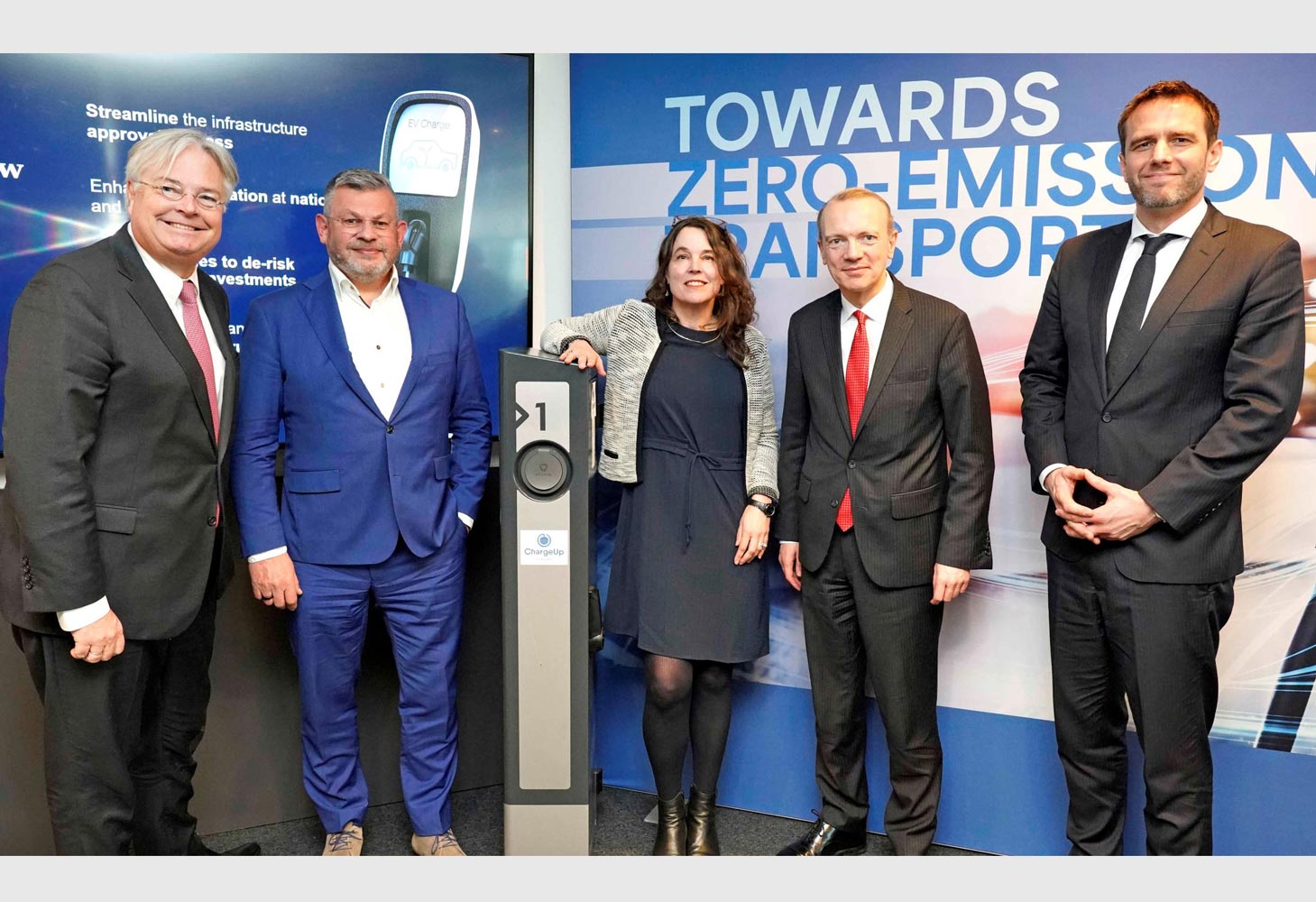
Industry coalition calls for robust zero-emission policy in EU
A coalition of industries have come together to urge the European Parliament and European Council to adopt strong, interconnected policies to accelerate the transition to zero-emission and CO2-neutral mobility.
The sectors – which are all key players in the decarbonisation of road transport – launched their first-ever common appeal to policy makers at a cross-industry roundtable in Brussels on March 18.
The industries were represented by their associations: the European Automobile Manufacturers’ Association (ACEA), the European Association of Automotive Suppliers (CLEPA), Eurelectric (the wider electricity industry), WindEurope (the energy generation sector) and ChargeUp Europe (the electric vehicle charging infrastructure industry).
First and foremost, increased investment in charging and refuelling infrastructure for alternatively-powered cars, vans, trucks and buses is urgently needed, according to the industry coalition consisting of the automotive, energy generation, electricity and charging infrastructure industries. The EU will therefore need to adopt higher targets for both public and private infrastructure than those foreseen in the European Commission’s Alternative Fuels Infrastructure Regulation (AFIR) and Energy Performance of Buildings Directive (EPBD) proposals.
To make charging and hydrogen refuelling stations commercially viable during the ramp-up phase of electric vehicles, public support, financial incentives, co-funding and mandatory targets are needed. This is crucial to ensure that a minimum infrastructure network becomes rapidly available across the EU, say the co-signatories. Public intervention is needed now for a limited period, especially in areas where the roll-out is slower.
The ramp-up of infrastructure should go hand-in-hand with the transition to zero-emission energy. Moving towards climate-neutral transport and mobility only makes sense if the transition to zero-emission energy happens in parallel, the coalition said. Incentives should therefore be given to encourage the use of zero-emission energy in the transport sector, the signatories argued. Accelerating permitting procedures to deploy the needed renewables generation capacity is key.
The end-user should also not be forgotten, with policies ensuring a customer-centric charging ecosystem that is affordable and allows for EU-wide roaming, without prejudice to the contractual freedom of market’s operators.











